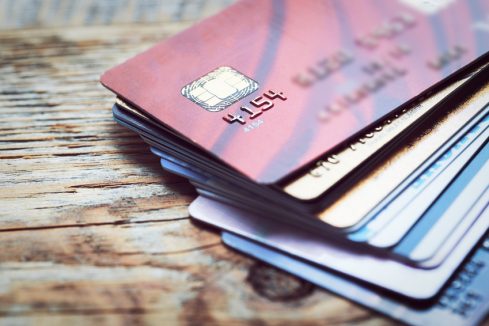
When Do We Accumulate Debt?
According to Time Money, the average American starts accumulating debt in their 20s and 30s. That debt nearly doubles by the time they are in their late 30s and 40s. To put that in perspective, here’s how much typical Americans owe in debt overall, broken down by age group:
Under 35: $67,400.
35 to 44: $133,100.
45 to 54: $134,600.
55 to 64: $108,300.
65 to 74: $66,000.
75 and up: $34,500.
“The trend tends to follow when people have children and those kids’ needs,” said John R. Salter, professor of financial planning at Texas Tech University. “We see that rise in debt at the time most people are looking for bigger homes to get more space for their family. Also, when buying cars for their children, or paying college tuition for them.”
There are all sorts of reasons for these high debt statistics. Some include poor financial literacy and responsibility, high student loans, difficult job market, and much more. Thankfully, there are plenty of things you can do in order to not only prevent yourself from falling victim to serious debt issues, but from getting out of debt altogether. Here are some tips for better handling your debt:
Staying Out of Debt Tips
- Stop eating out — Eating out is so much easier than cooking at home. It’s also so much more expensive. As long as you’re being smart about the foods you’re purchasing at the grocery store, you should be able to find some affordable foods that are quick and easy to cook as well.
- Be careful with your credit card — In credit card debt alone, Americans owe more than $930 billion. One of the main reasons Americans struggle with massive credit card debt is they spend far too much. About two in five Americans who have ever had credit card debt (41%) reported that spending more than they could afford on unnecessary purchases contributed. Once the debt has already accumulated, however, paying more than the minimum amount due each month. This is a great way to not only improve your credit score. You can also decrease your debt, as well. Approximately one-third of Americans pay the minimum due on their credit card bills each month. This habit causes all sorts of financial problems.
- Get rid of costly expenses you don’t need — There was a time when cable, for instance, reigned supreme. Now, since cable costs are extremely high, consumers are looking for more affordable options for viewing content. Get rid of that $100 each month and use that cash to pay off some of your other debts!
- Hold off on those costly vacations for a while — Approximately 52% of survey respondents around the globe plan on vacationing to a beach destination at some point over the next 12 months. Until you’re completely out of debt, it’s best to avoid these type of vacations. Trips of all kinds can become extremely expensive and harm you financially.
- Avoid timeshares and similar long-term deals — Even if you love vacationing and think you’re actually going to be saving money, it’s best to avoid these kinds of deals because they can ruin you financially if you’re not careful. The average price of a new timeshare is around $20,000 — not exactly a great thing to purchase when you’re attempting to get out of debt (no matter what the salesperson says!). Approximately 85% of timeshare buyers end up regretting their purchase, citing fear, intimidation, distrust, confusion, and money as the main reasons for their regrets.
One Final Word
Make sure you’re doing everything you can to not only get out of all your current debt, but stay out of debt altogether.

